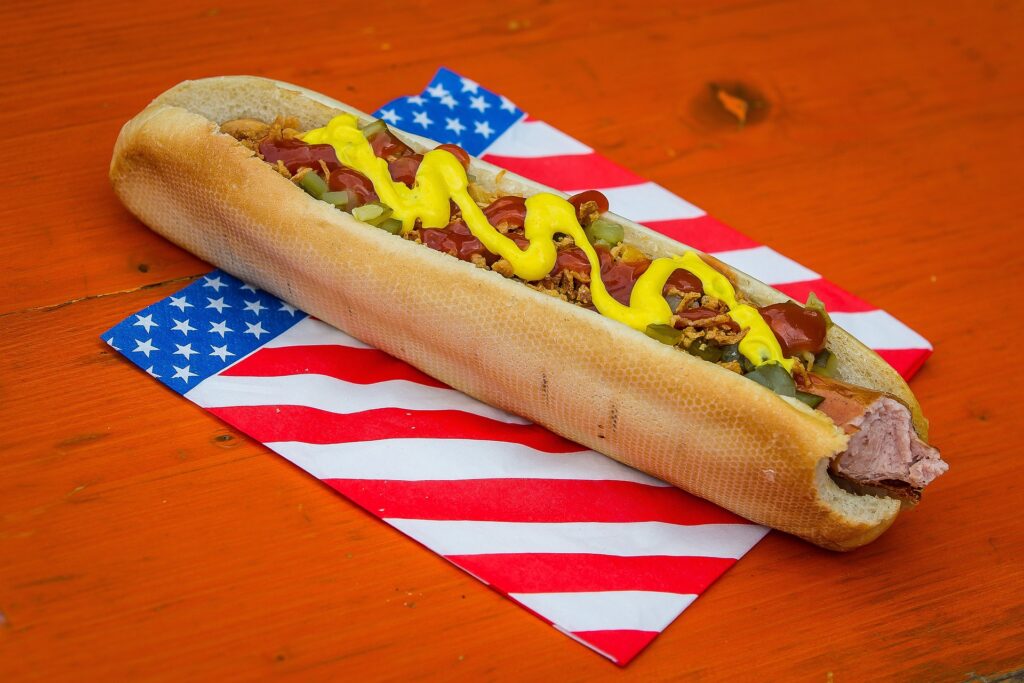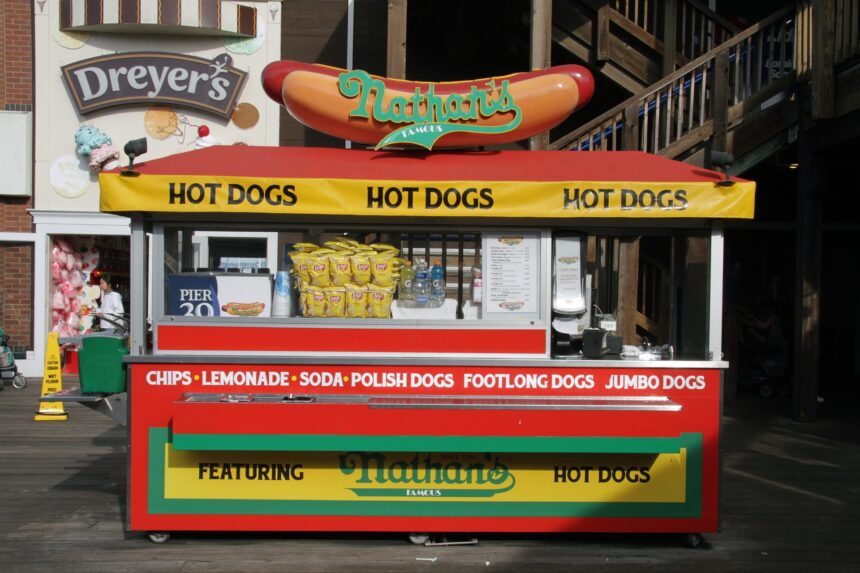Nathan hot dog eating contest cheating is more than just a summer tradition; it’s a spectacle that embodies the quirky spirit of America. Every Fourth of July, thousands gather at Coney Island to watch competitors gobble down as many hot dogs as possible in just ten minutes. This year, however, the excitement was overshadowed by serious allegations of cheating, specifically targeting contestant Nick Wehry. Let’s dive deep into the details of this unfolding drama, the reactions it provoked, and the implications for the world of competitive eating.
A Brief History of Nathan Hot Dog Eating Contest
The Origins: From Local Event to National Sensation
Started in 1972, Nathan’s Hot Dog Eating Contest was initially a small promotional event designed to draw customers to Nathan’s Famous. Over the decades, it transformed into a nationally televised event that showcases not only competitive eating but also the rich history of American culture.
The Evolution of Competitive Eating
As competitive eating gained popularity, it birthed its own set of stars, rules, and dedicated organizations like Major League Eating (MLE). What began as a quirky contest is now a recognized sport, complete with rankings, sponsorships, and even training regimens.
The 2023 Contest: Anticipation Meets Controversy
The Event Details: A Feast of Champions
The 2023 contest boasted an impressive lineup of seasoned veterans and hungry newcomers. The atmosphere was electric, filled with fans waving flags and cheering for their favorite competitors. It’s a vibrant display of American spirit, with a side of intense competition.
The Allegations Erupt
Following the contest, a wave of allegations emerged regarding Nathan hot dog eating contest cheating. Eyewitnesses claimed that Nick Wehry had added five hot dogs to his tally, raising eyebrows and igniting a heated debate about the integrity of the competition. What began as a celebration quickly morphed into a scandal that questioned the very foundations of competitive eating.
Examining the Cheating Allegations
How Did It All Begin?
The allegations of Nathan hot dog eating contest cheating gained traction on social media, where fans dissected footage of the contest. Many viewers noticed inconsistencies in Wehry’s eating style compared to the number of hot dogs he reported consuming. This prompted a frenzy of speculation, with some going so far as to create viral posts demanding accountability.
The Role of Technology in Modern Sports
In today’s digital age, every moment of competition is scrutinized. Video replays, social media commentary, and online forums allow fans to dissect performances in real time. While this increases accountability, it also opens the door to rampant speculation and misinformation. The Nathan hot dog eating contest cheating scandal serves as a prime example of how technology can amplify both support and suspicion.
The Reaction from the Competitive Eating Community
Voices of Fellow Competitors: A Divided Community
The competitive eating community has been vocal in its response. Many fellow competitors expressed shock and disappointment regarding the allegations of Nathan hot dog eating contest cheating. They emphasized the importance of integrity and fair play in the sport. Some suggested that if Wehry was indeed guilty, he should face consequences to protect the sport’s reputation. Others defended him, arguing that the scrutiny he faced was unwarranted and that the allegations could be based on misinterpretations.
Fan Reactions: Outrage and Defensiveness
Fans took to platforms like Twitter and Instagram to express their outrage. Some called for stricter penalties for cheating, while others defended Wehry, arguing that competitive eating is inherently subjective and difficult to judge. This divide reflects a broader cultural discussion about accountability and fairness in sports, especially in light of the Nathan hot dog eating contest cheating allegations.
The Broader Implications of Cheating in Sports
Trust and Integrity: The Cornerstones of Competition
Trust is the bedrock of any competitive sport. When allegations of cheating arise, they can shake the confidence of fans and participants alike. This incident not only affects the individuals involved but can also deter new fans and aspiring eaters from participating in the sport.
Historical Context: Learning from Other Sports
Cheating scandals are not new in the world of sports. From doping in cycling to match-fixing in football, each scandal serves as a reminder of the need for stringent regulations. The fallout from these incidents often leads to reforms designed to uphold the integrity of the sport, and the competitive eating community may need to consider similar measures following the Nathan hot dog eating contest cheating allegations.

Moving Forward: The Path to Restoration
Calls for Enhanced Regulations
In light of the scandal, there are increasing calls for MLE to implement more rigorous oversight measures. Fans and competitors alike believe that enhanced monitoring could help restore faith in the sport. Suggestions include having independent judges and using technology to verify performances in real-time, especially given the recent concerns about Nathan hot dog eating contest cheating.
Community Engagement: Involving Fans and Competitors
Engaging the competitive eating community in discussions about integrity and rules could foster a sense of ownership and responsibility among participants. This can help build a culture of honesty that prioritizes fair competition over personal glory.
The Role of Major League Eating (MLE)
MLE’s Responsibility in Maintaining Integrity
As the governing body of competitive eating, MLE has a significant role in addressing these allegations. They must ensure that the rules are clear, fair, and enforced uniformly. Transparency is vital to regaining the trust of fans and competitors, especially in light of the Nathan hot dog eating contest cheating claims.
Innovations for the Future of Competitive Eating
MLE can turn this challenge into an opportunity for growth. By adopting innovative solutions like technology-assisted monitoring, they can enhance the competitive eating experience while ensuring fair play.
Conclusion
The nathan hot dog eating contest cheating has been a symbol of American culture for decades. However, the recent cheating allegations against Nick Wehry serve as a pivotal moment for the sport. How the competitive eating community responds to this scandal will shape its future. By prioritizing integrity and transparency, MLE and its participants can work together to rebuild trust and ensure that this unique sport continues to thrive.
FAQs
1. What exactly is Nick Wehry accused of?
Nick Wehry is accused of adding five hot dogs to his total during the contest, which has sparked controversy and debate about Nathan hot dog eating contest cheating.
2. How do these allegations impact the credibility of competitive eating?
Cheating allegations can damage public trust and diminish the sport’s appeal, potentially affecting viewership and participation rates.
3. What measures can be implemented to ensure fair competition?
Stricter regulations, real-time monitoring, and clear rules can help ensure integrity in competitions, protecting both participants and fans.
4. How has social media influenced the scrutiny of competitive eating?
Social media platforms allow fans to analyze performances and share their opinions, leading to increased scrutiny but also fostering discussions around accountability.
5. What can we expect from Major League Eating moving forward?
MLE may implement new oversight measures and engage the community in discussions about integrity to restore trust and enhance the sport’s credibility, especially in light of the recent Nathan hot dog eating contest cheating allegations.







